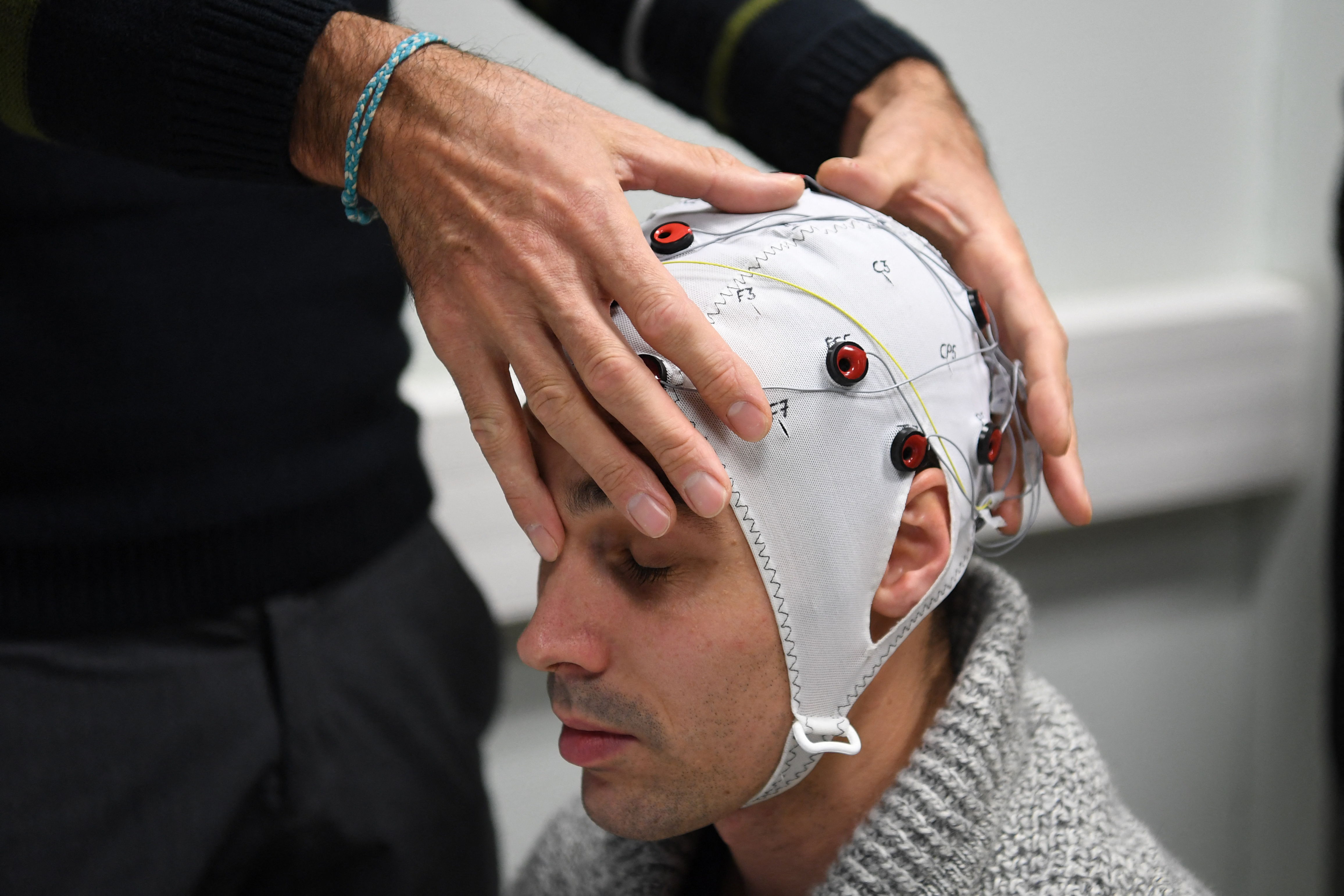Scientists find new way to record how brain cells respond to stimuli

Scientists at KU Leuven have found a new way to record how individual human brain cells respond to visual stimuli. Their research shows that the cells respond much more strongly to images of bodies and body parts than to images of other objects.
The ability to image the activity of individual brain cells has been limited until now. Imaging techniques such as an EEG or a brain scan allow the study of brain regions, but they do not provide insight into the responses of individual brain cells.
Scientists and doctors at KU Leuven and UZ Leuven hospital have found a way to study human brain cells directly. Until recently, this was only possible in laboratory animals.
"This gave us a unique opportunity to study specific brain activity and properties"
The scientists' study, published on Monday in the journal PNAS, focused on epilepsy patients who do not respond to medication and who are candidates for brain surgery. Neurosurgeons placed deep electrodes and small microelectrodes in their brains to track the origin of the seizures.
"This gave us a unique opportunity to study specific brain activity and properties over a two-week period," said neuroscientist Peter Janssen of the Leuven Brain Institute.
Enabling medical innovation
"In this study, we had patients look at different types of images of human bodies, animals, faces and other objects and recorded the responses of hundreds of individual brain cells," said Janssen. The study showed that brain cells responded much more strongly to images of bodies than to images of other objects.
The reactions were strong for human bodies and body parts such as hands and feet. The same brain cells were also found to respond to abstract stick figures. The findings are interesting not only to learn more about the causes of epilepsy, but also to enable medical innovation, said Janssen.
"This could allow people paralysed by a spinal cord injury to control a computer with their thoughts"
"I am thinking, for example, of brain-machine interfaces: technology that connects the brain to an electronic device or computer," Janssen said. "This could allow people paralysed by a spinal cord injury to control a computer with their thoughts. And visual implants for the blind will hopefully one day no longer be science fiction."
#FlandersNewsService | Illustration © PHOTO JEAN-PIERRE CLATOT / AFP
Related news

